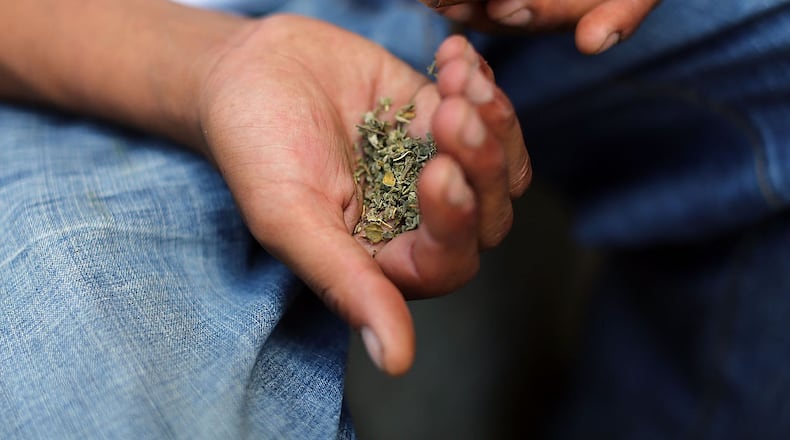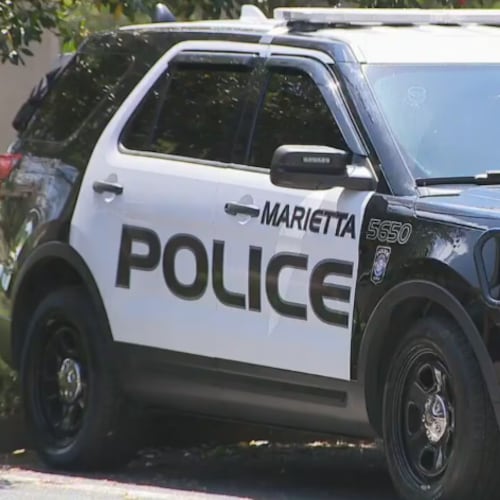Milton is trying to stamp out all controversial synthetic alternatives to marijuana and opiates after seeing local teens become ill.
The rural city of 40,000 in northern Fulton County announced Monday that it has banned the sale and possession of the substances, usually sold at vape shops and gas stations, or face a fine.
The marijuana-like products are often called spice, bath salts, potpourri or K2. Synthetic marijuana is a natural herb treated with chemicals that mimic THC, tetrahydrocannabinol, which is the active ingredient in marijuana, the city said. Spice gives a marijuana-like psychotropic high.
Milton officials said this effort, which came from the city police department, is because of incidents involving teens.
They mentioned the Alpharetta student who became unconscious after vaping "Green Mist" while at Kings Ridge Christian School in October. Reports indicate the product was purchased from a Milton vape shop.
Milton officials said they aren’t sure how many stores in the city sell the substances but are working to find out.
From 2012 | Fake marijuana use is a serious problem for teens
State legislators worked to ban the substances after a 2012 incident in which 16-year-old Chase Burnett drowned after smoking Mojo Diamond Extreme 100X Potpourri purchased at a Fayette County convenience store.
Legislators and then-Gov. Nathan Deal did outlaw the products as Schedule 1 narcotics, but producers bested them by changing the chemical compounds quicker than laws could be written.
"It's like a whack-a-mole game," the teen's father David Burnett said at the time. "You never know what's going to come next."
As for the opiates substitutes, Milton spokeswoman Shannon Ferguson said they “can be naturally occurring or a chemically altered product designed to act on opiate receptors in the brain. In general, the loop hole around state law is that by just slightly altering the chemical compound it is no longer an ‘opiate’ as defined in state law.”
READ | What is K2? Synthetic marijuana causing bleeding from eyes and ears
Though Milton did not mention it by name, this class of substances includes Kratom, about which the Food and Drug Administration issued a warning about and the chief Georgia medical examiner has said kills people.
The FDA said kratom is a tropical tree in the coffee family native to Southeast Asia.
"Some people who practice Asian traditional medicine consider kratom to be a substitute for opium," according to the Mayo Clinic.
The Mayo Clinic continued: “Kratom is also used at music festivals and in other recreational settings. People who use kratom for relaxation report that because it is plant-based, it is natural and safe. However, the amount of active ingredient in kratom plants can vary greatly, making it difficult to gauge the effect of a given dose. Depending on what is in the plant and the health of the user, taking kratom may be very dangerous.”
Milton gave businesses 30 days to remove all banned products. After then, possession means a misdemeanor penalty with a fine up to $1,500.
Officials said they also plan to reach out to schools and parents to warn them about the dangers and the new ban.
Like North Fulton County News Now on Facebook | Follow on Twitter
About the Author
Keep Reading
The Latest
Featured




